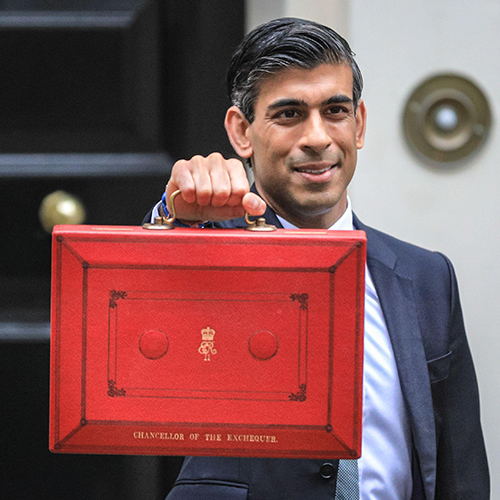Several tax policy adjustments were announced by the chancellor in his Autumn Budget speech, changing the tax landscape for many businesses.
Here, we outline the implications of Rishi Sunak’s plans to alter R&D (research and development) tax relief, capital gains and corporation tax, and the annual investment allowance.
R&D
As well as announcing an increase in government R&D spending, Rishi Sunak also used his autumn budget speech to propose changes to R&D tax relief.
The first proposed adjustment is to extend the relief so that it includes data and cloud computing costs, while the second alteration is aimed at limiting relief to R&D activity in the UK. Both changes will be legislated for in the Finance Bill of 2022-23 but won’t come into effect until 1 April 2023.
James Clark, Markel Tax’s associate director of tax incentives and reliefs, says that although the £20bn spending shows the government’s continued commitment to R&D, it’s not as much as was hoped for. “It’s a step back from last year’s budget target of £22bn a year by 2024-25, which has now been pushed back to 2026-27.”
However, the announcements are not a case of the government “pulling up the drawbridge on funding R&D”, James says, rather “a change in the timing, which is not unexpected given the challenge the Chancellor has balancing the books because of the pandemic.
“I think businesses will understand R&D can’t be viewed in isolation, and that it’s a part of the overall economic strategy in exceptional circumstances”.
Capital allowances
The Chancellor also opted to extend the increased annual investment allowance rate of £1million until April 2023.
The allowance allows businesses to write off 100% of the cost of qualifying capital investments, up to a set limit. It was introduced in 2008 and began at £50,000, but this was temporarily raised to £1m in 2019. It will now remain at this level for a while longer instead of returning to £200,000 in January 2022 as was previously planned.
This was a move aimed at encouraging business investment, says Adam Ellerington, senior tax consultant at Markel. It means that “businesses are able to invest more in new capital, for example new plant machinery, and receive effectively a 100% write-down of those costs for a longer period”.
Businesses who had been planning to take on increased capital expenditure before the original deadline of 31 December will now have longer to plan and implement their investments.
Corporation tax
The main rate of corporation tax was unchanged in the Autumn Budget, following the announcement of plans to raise it to 25% in April 2023 at the Spring Budget earlier in the year.
The chancellor did propose changes to the banking surcharge however, indicating that it will be lowered from 8% to 3%. This is a move aimed at ensuring that the total tax burden on banks’ profits remains competitive, even once the main rate is increased.
Meanwhile, the surcharge allowance – the level at which the banking surcharge kicks in – was raised from £25m to £100m, increasing the amount of profit banks can make before they must start paying the surcharge. This move is likely to benefit smaller “challenger banks” such as Monzo.
Capital gains tax
The chancellor also announced that the 30-day window for reporting and paying capital gains tax after selling property in the UK, introduced in April 2020, would be doubled to 60 days.
This move was recommended by Office for Tax Simplification, which had found that many taxpayers did not become aware of their obligations until they had completed their sale, leading to fines.
